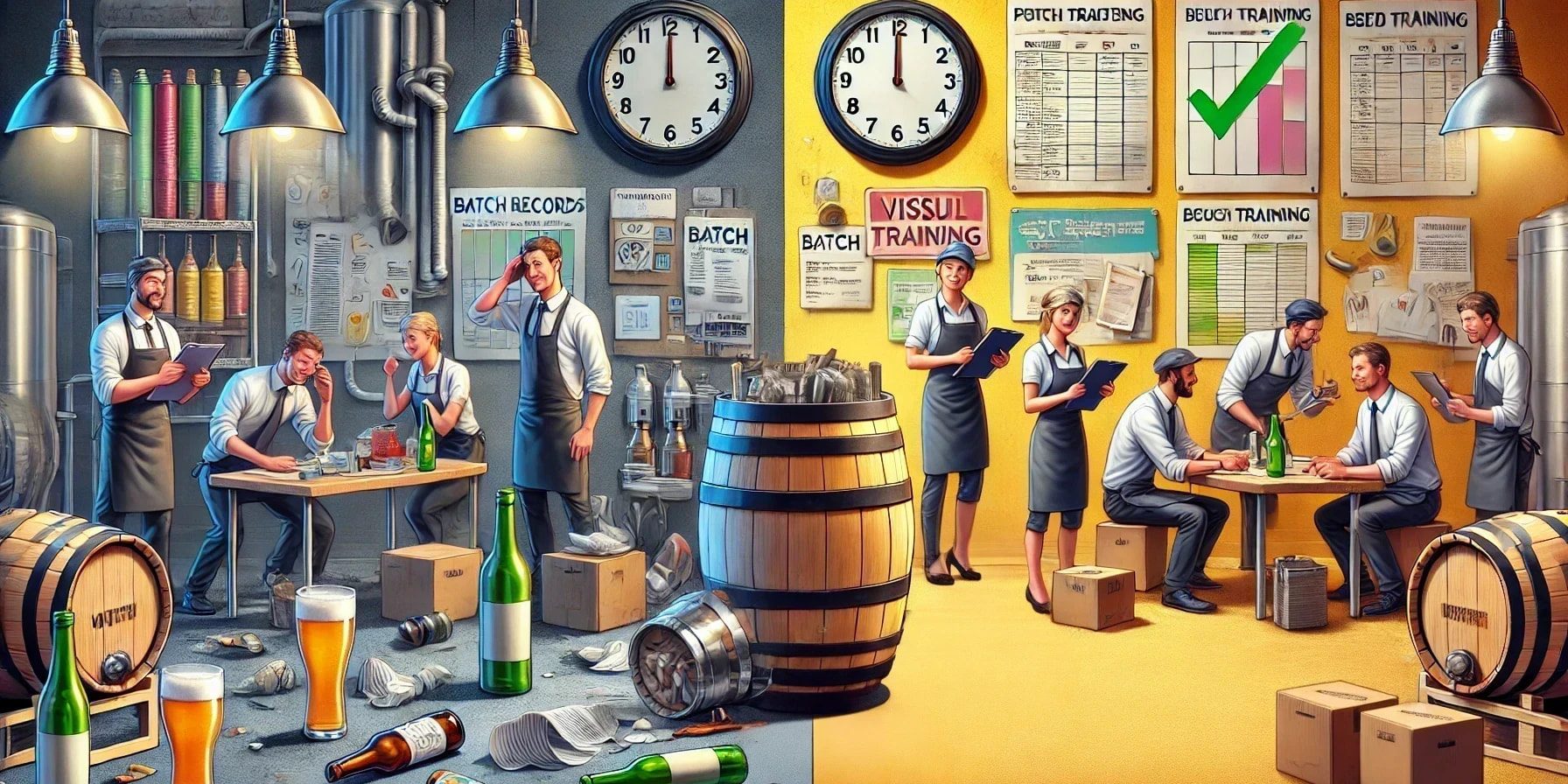Running a drinks business is a balancing act. Between production schedules, regulatory compliance, and delivering a consistent customer experience, there’s little room for error. Yet training — the very thing that helps prevent mistakes — is often treated as an “extra cost” rather than a core investment. The reality? The hidden costs of neglecting training quietly drain far more from your business than the upfront investment ever could.
The Hidden Costs of Poor Training
Operational Errors – When staff aren’t properly trained, small mistakes snowball into costly issues: incorrect measurements, missing batch records, or recipe inconsistencies that throw off entire productions.
Regulatory & Compliance Risks – In wine, beer, and spirits, compliance is non-negotiable. Errors in excise duty reporting, traceability gaps, or labeling mistakes can trigger fines, delays, or even product recalls, these can lead to products that are unsaleable in local or export markets.
Wasted Time & Inefficiency – Without clear training, staff spend more time guessing and less time producing.
Customer Impact – Inconsistent products, missed orders, or delayed deliveries erode trust. Every error chips away at your brand reputation and customer loyalty.
How It Impacts the Bottom Line
Poor training shows up directly on your financials:
- Spoilage and rework inflate production costs.
- Compliance failures result in financial penalties.
- Customers leave when quality slips, reducing repeat business.
- Staff who feel unsupported are more likely to leave, driving up turnover costs.
- Training can even turn good staff into great staff, taking you beyond your expectations
The Benefits of Investing in Training
When training is done well, the results are clear:
- Staff are empowered to get things right the first time.
- Compliance becomes smoother.
- Tools are used to their full potential.
- Morale, confidence, and retention all improve — saving you from the hidden costs of high turnover.
Practical Steps for Producers
Getting started doesn’t need to be overwhelming:
- Focus on core areas first — compliance, production processes, and system use.
- Build simple, accessible training resources that staff can revisit anytime.
- Make training part of your culture, not just a one-off onboarding task.
To conclude, training isn’t a cost. At worst, it is protection against the hidden losses eating into your margins at best, you are making your good staff great. In the competitive world of selling wine, beer, and spirits, knowledge is more than power — it’s a long-term profit driver. Take the time to review your training practices. It could be the most profitable investment you make this year.






